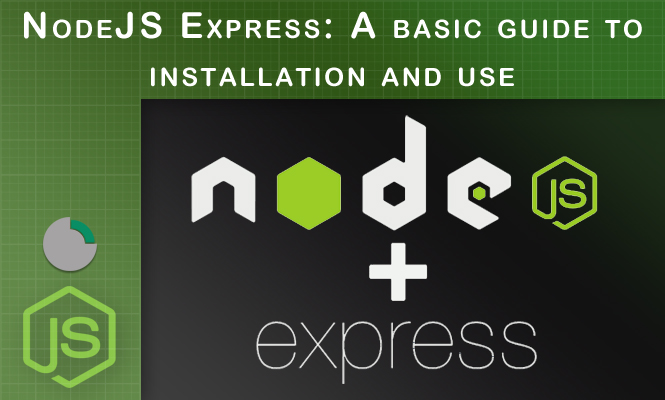NodeJS Express is a minimalist and flexible web application framework for Node.js. It provides a robust set of features for creating single-page, multi-page, and hybrid web applications. In this comprehensive guide, we will delve into the fundamental concepts of Node Express, covering everything from installation to building complex applications. We will explore topics such as routing, middleware, and templating, providing practical examples and code snippets to illustrate each concept. Node.js can also be combined with TypeScript, a superset of JavaScript, that offers static typing and other advanced language features that can significantly improve code quality and maintainability.
Setting up your development environment
Before we dive into coding, let’s ensure we have the necessary tools installed. You’ll need:
- Node and npm (or yarn): These are essential for managing JavaScript projects.
- TypeScript: A language for application-scale JavaScript.
- A code editor: Visual Studio Code is a popular choice, offering excellent TypeScript support.
Install Node.js and npm. Once installed, use npm to install TypeScript globally:
npm install -g typescript
Creating a new NodeJS Express project with TypeScript
Create a new project directory and initialize a package.json file:
mkdir express-ts-app
cd express-ts-app
npm init -y
Install the required dependencies:
npm install express @types/express typescript ts-node
Create a tsconfig.json file to configure TypeScript:
{
"compilerOptions": {
"target": "es6",
"module": "commonjs",
"outDir": "./dist",
"strict": true,
"esModuleInterop": true,
"forceConsistentCasingInFileNames": true
}
}
Building a basic NodeJS Express application
Create an index.ts file:
import express from 'express';
const app = express();
const port = 3000;
app.get('/', (req, res) => {
res.send('Hello, TypeScript Express!');
});
app.listen(port, () => {
console.log(`Server is running at http://localhost:${port}`);
});
To start the development server, use ts-node:
ts-node src/index.ts
Routing with TypeScript
TypeScript allows you to define route parameters and query parameters with strong typing:
import express from 'express';
interface User {
id: number;
name: string;
}
const app = express();
app.get('/users/:id', (req, res) => {
const userId = parseInt(req.params.id);
const user: User = { id: userId, name: 'John Doe' };
res.json(user);
});
Middleware in TypeScript
Middleware functions can be written in TypeScript to add additional functionality to your application:
import express from 'express';
const app = express();
app.use((req, res, next) => {
console.log('Request received at:', new Date());
next();
});
Error handling
Express provides a robust error handling mechanism:
app.use((err, req, res, next) => {
console.error(err.stack);
res.status(500).send('Something went wrong!');
});
Conclusion on NodeJS Express
Combining Node Express with TypeScript offers a powerful and type-safe approach to building web applications. By leveraging TypeScript’s features, you can write more reliable and maintainable code. In this guide, we’ve covered the fundamental concepts of using Express with TypeScript.
Additional Topics:
- Static typing benefits: How TypeScript improves code quality and maintainability.
- Advanced TypeScript features: Explore concepts like interfaces, classes, and generics.
- Testing with Jest: Write unit and integration tests for your Express applications.
- Error handling: How to handle errors gracefully in Express applications.
- Session management: Using sessions to store user data.
- Authentication and authorization: Implementing user authentication and authorization.
- Database integration: Connecting Express to databases like MongoDB or PostgreSQL.
- Deployment: Deploying Express applications to production environments.

One thought on...